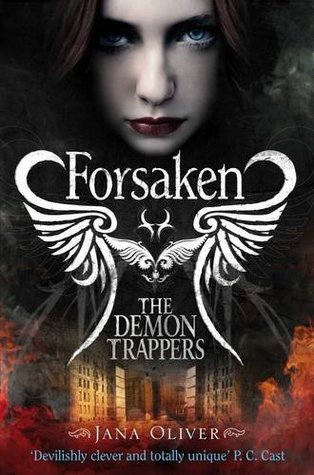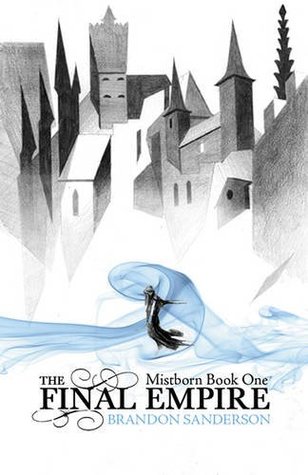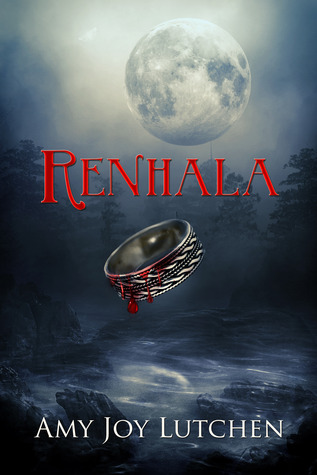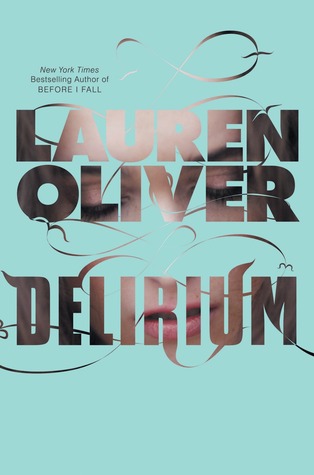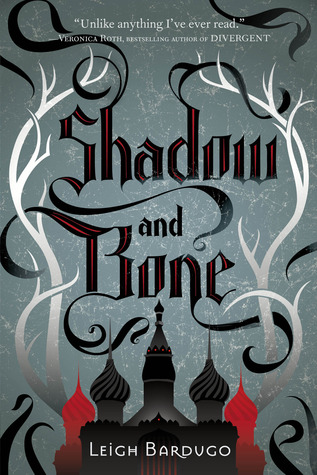Right now, Lancaster's annual literature festival, Litfest, is in full swing, which means there are all sorts of cool events happening in Lancaster. Yesterday I went to a discussion on Young Adult Gothic Fiction which was led by Dr Catherine Spooner, an English Literature lecturer at my university, and featured YA authors Celia Rees (author of Witch Child), Chris Priestley (author of the Tales of Terror books), and Cliff McNish (author of The Hunting Ground and Breathe). It was really interesting! The topic under discussion was why Gothic has become so popular over the last few years, and why it's so appealing as a genre. I love the Gothic - I just find it fascinating, both to study and to write (I've never exactly written a Gothic novel, but there are definitely elements of it in my Darkworld series, what with all the graveyards, demons and possession...), so this was right up my street!
First came a discussion of what exactly Gothic is, and it's pretty hard to define! The actual term Gothic comes from the Gothic architecture of the Middle Ages, in which there was a revived interest in the 18th century, when Horace Walpole wrote what is known as the first 'Gothic story', The Castle of Otranto. It's a pretty bizarre story, to be honest. I mean, in the opening scenes, a gigantic helmet falls from the sky and crushes the King's son to death. Honestly. Despite this, there's no denying that the book contains many elements we recognise in Gothic novels today - spooky settings (including a Gothic castle), darkness, hauntings and apparitions, the revelation of hidden crimes and murder. Another, very popular, book in the late 18th century was Ann Radcliffe's The Mysteries of Udolpho, in which a series of supernatural occurrences seem to befall the heroine, only to be revealed to have a rational explanation in the end. On the other hand, there are books like The Monk, which is pretty macabre. Of course, one of the best-known Gothic novels is Bram Stoker's Dracula, written in the late 19th century, and Gothic short stories by authors like Edgar Allen Poe were also very popular in the Victorian era. I apologise for letting my inner literature geek out for a bit there - I studied Romanticism and Victorian Literature last year so I know all this random stuff!
Anyway, Gothic resists definition to a certain extent. It's often used as a uniform term for any 'scary' story, but there are tales in other genres which can be classified as Gothic also. A defining factor is the evocation of a certain atmosphere. A sense of place is very important in Gothic, which is why so many settings recur throughout the genre: castles, graveyards, churches, foggy moors, deep forests, underground passages. A skilled author can create a spooky atmosphere with only a few words, and often the setting alone can unsettle us. Claustrophobia is often evoked through setting, confining the action to a small area, such as a house or building. An interesting point which was brought up was the technique of using settings like houses, which are supposedly safe, and turning them into places of danger.
I think this is part of the appeal of Gothic: it frightens us, that's its aim. Gothic is concerned with the darker side of life, and things that unsettle us, so writers try to tap into our archetypal fears. The fear of being watched or followed, the threat of imminent harm, fear of being alone. The key question of the discussion was: why is the Gothic currently flourishing in young adult literature? The three authors on the discussion had interesting things to say about this! Cliff McNish's argument that we 'need' fear in a way because in the modern world, there is no longer anything major to be afraid of. All events can be explained rationally; we have cures for most diseases, or in any case can work out the cause; and most people live long lives. It's very different from what life was like when dangerous beasts lurked outside the small villages, and war and plague could decimate the population. Today we have technology and knowledge of the way the world works, and there is no longer any significant 'unknown' element. Is this the reason for the abundance of fear-filled tales: because we can't live without an outlet for fear? Part of the appeal of Gothic as a fiction form is that it isn't real; it's scary, but distanced from us because we experience it through the characters' eyes. How would people really react if we found proof of the existence of the supernatural? Life as we knew it would fall apart.
Gothic is often associated with the 'forbidden' or with transgression, breaking of boundaries. I'd say this also includes a breaking of the rules of reality we are used to. It's also - and I was pleased with the reference to Christopher Booker, one of the main focuses of my dissertation! - a version of the archetypal 'overcoming the monster' tale, whether the monster be human or supernatural. There were some interesting suggestions about what actually qualifies as 'Gothic'. Is the film Alien Gothic? Is Batman, which is set in the modern Gothic city of Gotham and features many staples of the genre? It's a debatable thing, and literature geek that I am, I find it all fascinating!
But of course it interests me as a writer, too. I also received some great advice on writing horror from the Cliff McNish, who signed my newly purchased copy of his novel The Hunting Ground, which looks like a pretty good read! His advice on scaring the reader is to think of a frightening situation and write it, then go back and think of a way to make it even scarier, to dig deeper. Then leave it for a while, come back to it, and take it a level deeper, make it even scarier. You start off with something generic, and end with something completely unique. When you delve into the darkest depths of your imagination, that's where true originality happens!
My Darkworld series could probably be classified as Gothic fantasy, as the magic in the story is connected to dark forces, and the demons are really creepy. There are also some very Gothic-inspired settings (it's set in a little coastal town near dark forests and rugged cliffs, with a sinister abandoned cemetery and a network of tunnels beneath it!). The first book, Darkness Watching, relies on suspense and potential threat (the demons), but I didn't want to write out-and-out horror despite my rather morbid imagination! I think that writers often try to scare themselves. If I'd read my own books as a child, I'd probably have had nightmares! But the books that scare us are very often the ones we revisit again. Darkness fascinates us.When asked 'Why do you write?', author China Mieville said, 'I do it for the monsters'. Seems like a good enough reason to me!










